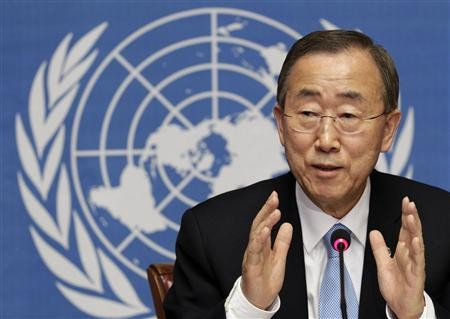UN’s Ban Ki-moon Announces ‘Zero Hunger Challenge’ at Rio+20 Conference

UN secretary general Ban Ki-moon has announced a "Zero Hunger Challenge" at the Rio+20 conference calling on all leaders and nations to work for a future where every individual has adequate nutrition and where all food systems are resilient.
While launching the challenge, Ban emphasised the fact that every day over one billion estimated people go to bed hungry.
"In a world of plenty, no one - not a single person - should go hungry," Ban said during the launch of the initiative) in Rio de Janeiro, Brazil. "I invite all of you to join me in working for a future without hunger."
The event was attended by over 40,000 people including heads of state and government, parliamentarians, mayors, UN officials, business and civil society leaders. The prime aim of the event is to shape new policies to promote global prosperity, reduce poverty and advance social equity and environmental protection.
The Guardian reported that Ban praised the previous efforts of the Brazilian government to reduce poverty and hunger through its Fome Zero programme, launched in 2004. The initiative has lifted millions of people out of poverty by supporting local farmers and community kitchens and introducing social welfare policies such as the Bolsa Familia scheme.
The person who was behind this Brazilian programme, Graziano da Silva, now is the director general of the Food and Agriculture Organisation (FAO). In addition to the programme, Silva supports a number of global campaigns including the UN campaign, the International Fund for Agriculture (Ifad), the World Food Programme (WFP), Unicef, the World Bank and Biodiversity International.
"Zero hunger would boost economic growth, reduce poverty and safeguard the environment. It would foster peace and stability," Ban said, calling on farmers, business people, scientists, civil society and consumers to join the challenge by honouring past promises and work together to put an end to hunger.
The "Zero Hunger Challenge" has five main objectives: to achieve 100 per cent access to adequate food all year round; to end malnutrition in pregnancy and early childhood; to make all food systems sustainable; to increase growth in the productivity and income of smallholders, particularly women; and to achieve a zero rate of food waste.
© Copyright IBTimes 2025. All rights reserved.





















